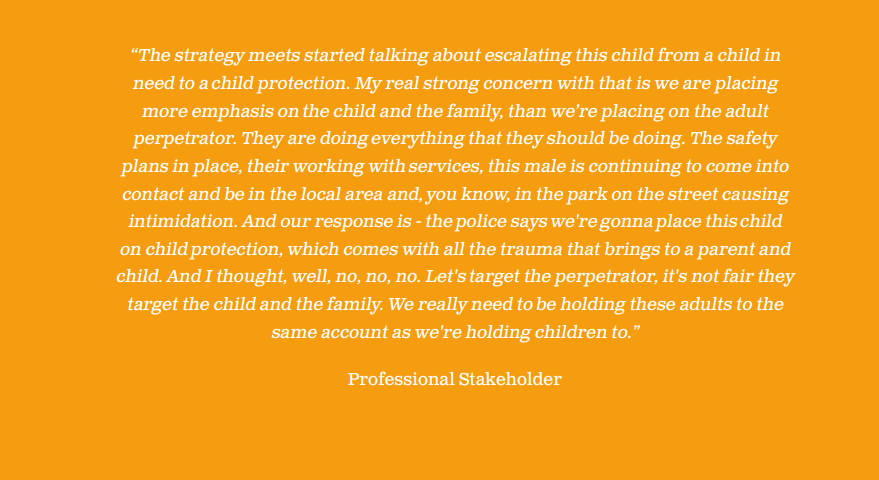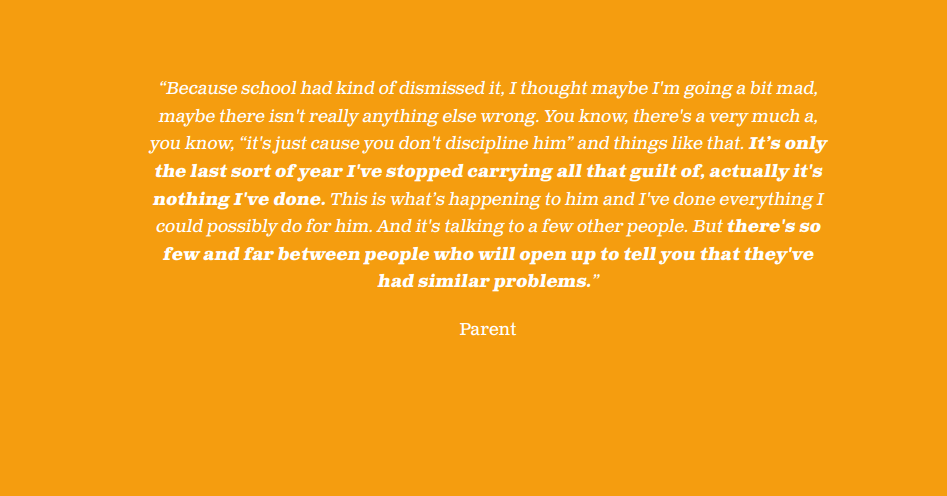Undiagnosed SEND in Schools is a catalyst for EXPLOITATION
- Eric Exposé
- Jan 3, 2024
- 4 min read
Updated: Jan 4, 2024

A new report, 'Voices Mean Choices', published by Barnardos in partnership with East Riding of Yorkshire shares research findings on child exploitation. The 2.5 years partnership aimed to create systemic change for children at risk of child sexual abuse or exploitation. Their mission is to "co-create a system that identifies abuse and exploitation earlier, recognises the child and their families needs and responds to meet those needs."
This post will highlight some of the more significant and concerning findings of this report but you can read the full report here.
The first notable quote form the report comes from the opening Project Background which states:
"It is believed that there is inconsistency in the language used across local authority services and by partners when talking about exploitation. Outside of specialist services there can be unhelpful and victim-blaming language and practice, which may be symptomatic of a lack of understanding of exploitation across the practice system and a factor in the late identification of children who are at risk of or being harmed through exploitation."
The report then highlights the objectives, method and sample data (54 Children and families) it collected to form the basis of it's research for this report btu the next section we'd like to mention is the Recommendations. The report also includes this visual summary of the research:


The 12 Recommendations include:
Enhance awareness & knowledge of exploitation
Ensure a trauma-informed response from universal services
Listen to and respond to family’s concerns immediately
Provide earlier SEND support in school to ensure inclusivity and belonging for all children
Understand needs of young people for whom indicators of exploitation are being missed. Shift responsibility onto the workforce for overcoming barriers to support
An early intervention offer is needed to support a child when indicators of exploitation are identified, and fill the support gap currently experienced by families
Referral pathway needs to move faster and more efficiently
Early safeguarding response to extra-familial harm should focus on more those who harm and making the child’s environment safer, and less on the child & their family
Shift responsibility away from the child and family
Prioritise relationships over processes
Consistently use child-centered & trauma informed language so children hear positive words being used about them
Better communication, collaboration and coordination of services between agencies
One of the main themes throughout the report is the element victim blaming as well as a lack of understanding and collaboration within services in ERYC . It is also worth noting, as the title of this post points out, that the report identifies Children with SEND in Schools are more vulnerable to exploitation. Specifically, undiagnosed SEND and lack of support in schools is the catalyst for this and the report shares parents and carers reporting:
Additional needs had gone unrecognised and they were still waiting for an assessment or told they don’t need one and didn’t know where to turn next.
An assessment and diagnosis had happened too late, i.e. after parents had been asking for it since year 7 and the EHCP only just got put into place in year 10 or 11.
Although they did have a clear identified need, the support from the school didn’t feel sufficient. We found the EHCP doesn’t always bring change or the support that’s needed
For anyone familiar with the SEND system this probably won't come as anything new but the report states that this all leads to "a lack of physical safety and increased emotional vulnerability."
The report also points out professionals stating how Stereotyping affects the level of response given to families and how this was also the experiences of young people and their families who had felt stereotyped and judged, at times. Three factors were flagged by both professionals and families:
Age and ‘adultification’: Older children can be perceived as less at risk than younger teenagers and unconsciously be seen as young adults rather than children, and therefore considered less vulnerable. Parents we spoke to of older children (15/16) voiced this concern, especially when their children were missing; they felt it wasn’t seen by services as big of a risk as when they were younger
Gender: Boys are generally seen as less at risk, especially of sexual exploitation, as has been evidenced in national research. The Humberside Police voiced that more needs to be done to identify and safeguard male victims of sexual exploitation, as they are largely unknown to services.
Social class and family background: Judging families who are well known to social services and children for whom criminal activity may be normalised in their surrounding environment. Conversely, overlooking families’ concerns who live in wealthier areas as the warning signs can be harder to identify or understand.
There seems to be an conflict in the finding of this report and the OFSTED inspection of East Riding's Children services in January 2023 which gave them a "Good" rating. Below is a side by side image of some of the experiences of families who took part in this research against OFSTEDs findings of the services:

We would recommend anyone wanting to have a more in depth understanding of the findings to read the full report. The final thing this post will highlight is an overview of some of the quotes from parents/carers and professionals that we believe to be significant.





















Comments